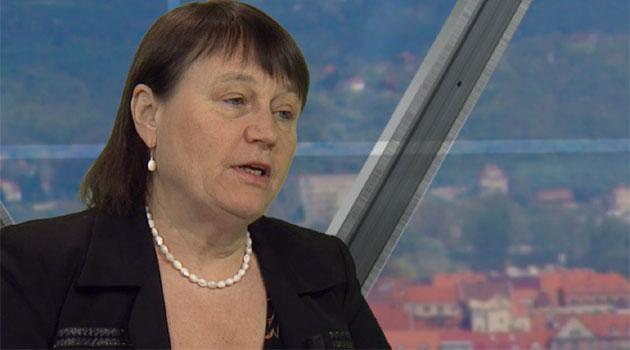Will the Czech catalog of support measures eliminate injustice in education?

Writing in the fourth issue of Škola all inclusive magazine, Petra Klimková reports that the catalog of support measures announced by the Czech Education Ministry is a breakthrough in many respects. Not only will teachers be able to have, for the first time, a clear, single list of all of the professional experience accumulated to date regarding the education of disadvantaged pupils, but the document will also aid in eliminating the many injustices to which some children are exposed in the schools.
After the age of seven, for example, pupils with so-called borderline intellect will receive assistance. These are children who previously would have attended what were called the "special schools" (today called the "practical elementary schools"), but who now must leave those schools as a result of measures adopted subsequent to a key judgment from the European Court of Human Rights in Strasbourg.
In 2007 the court ruled in favor of the parents of Romani children who sued the Czech Republic over discrimination against members of their minority in access to education. "The Education Ministry then took both non-systemic and systemic steps that resulted in all pupils who did not meet the parameters of a diagnosis of mental retardation being pushed out of the special schools into the mainstream schools, even pupils whose capabilities were insufficient for the successful completion of a majority-society school, given the lack of support usually available in such a school, even though these pupils would have benefited from attending a special school," says Milan Valenta of Palacký Unversity, the main methodologist of the Catalog for Children with Mental Disabilities and Impaired Cognitive Function.
Almost all children with borderline intellectual capabilities, according to Valenta, have been enrolled into majority-society schools without being provided any systemic support. Valenta warns that statistically, about 13 % of the population finds itself in this below-average range.
"The result was that the ‘borderlines’ did not do well in the majority-society schools, unless they had a brilliant family to do hard work with them at home. The average educator did not have either the conditions or the room to take an individual approach to these children and tutor them, there are no assistant teachers for these pupils," Valenta said.
Now these pupils will receive aid in the form of first and second-degree support measures in the catalog. The second-degree measures will entitle the schools using them to increased state financing.
Educators and school professionals have been calling for change for years
Important changes will also be introduced by the Catalog for Pupils with Physical Disabilities and Serious Diseases. "For the first time, it should be clearly, distinctly stated that the special educational needs of pupils in the schools are genuinely related to instruction and that there must also be targeted support for such instruction. The extent of physical disability does not always have a one-to-one correspondence with the extent of a child’s special educational needs," says Eva Čadová, who handled the methodology for physically disabled children.
Until now, such support has been provided according to the extent of a child’s physical disability. Another big change, according to Čadová, is that the catalog responds to the current situation in which the concept of "health disadvantage" is insufficiently treated in the legislation.
"The chronic and seriously ill pupils previously belonged, according to the law, to the group of pupils with special educational needs. The law assigns these pupils to the group of those with health disadvantages, but because of the way this group is defined in the law, it creates the impression that what is at issue are minor, negligible, or slight disorders and illnesses, which implies they should receive similarly minor, negligible or slight support for their education," she clarified.
The authors of the catalog had to grapple with the description of each group of illnesses and their impact on education, as well as with characterizing the special education measures that lead to reducing the impact of such somatic illnesses on instruction (by implementing various measures in practice). As far as the extent of those measures is concerned, pupils and students with somatic illnesses (according to the seriousness of the illness or its phase) can request support during education to an extent ranging from mild to the very highest support possible.
This support for pupils with health disadvantages will now be similar to the support that previously was only offered to disabled pupils. For those pupils, such support was also covered by higher per-pupil financing.
An informed teacher can prevent pupil failure
For visually impaired children, the catalog offers a set of measures that has already proven useful in practice. The authors emphasize measures for children who, per existing legislation, do not qualify as pupils with serious visual impairment because their problems during education flow from impaired visual perception.
The reason for this is the fact that the basis for the classification of visual disability remains a medical classification with social services implications that do not, however, completely meet the needs of a school environment. "We have mainly focused on a group of children with binocular vision disorders who, at preschool age, could be assigned to the group of children with visual disabilities. The support measures for this group of pupils are not financially demanding, rather, it’s about informing the educators, who can then prevent the child’s failure and poor results and who will know how to adjust the conditions so the pupil will be minimally exhausted by visual work," says Jana Janková, the methodologist for the visually disabled.
Janková says such pupils have problems, for example, with perceiving space. They also have problems orienting themselves in space and orienting themselves in a work area.
Equal conditions for all
The catalog will also help children with hearing disabilities who are not being provided equal access to education. Even though the law and a separate decree guarantee education to non-hearing pupils through sign language, there is no systemic provision of such education, particularly for non-hearing children who attend regular schools.
The aim of the Catalog of Support Measures for Pupils with Hearing Disability is to ensure these pupils enjoy the same educational conditions as hearing pupils. "That is why the catalog, for example, counts on educating hearing impaired pupils with the presence of a sign language interpreter, etc., as well as the position of a transcriber of spoken language, which is currently only used in higher education. The catalog also describes the instruction of the Czech language as a foreign language and the instruction of Czech sign language, which should be instructed as the mother tongue," says Jana Barvíková, the methodologist for pupils with hearing disabilities.
Changes to help children stay in school
While currently educators are engaged in a great deal of discussion about pupils with Autism Spectrum Disorders (ASD), educational support for many of them in mainstream education is not yet accessible or high-quality. Teachers often do not know what do to with such pupils.
The Catalog of Support Measures should provide guidance, help and support to teachers. ASDs, however, are only one of a whole range of psychiatric illnesses that educators might encounter in practice.
"Pupils with psychiatric illnesses, with the exception of autism, are today considered pupils with medical vulnerabilities, and this significantly eliminates their equal access to education. The impacts of the deficits flowing from the basic diagnoses of these pupils can often be so serious as to completely preclude regular school attendance. In order to aid what is often a very difficult return to the school environment for these pupils, schools must take advantage of a whole range of support measures that the current legislation does not facilitate," explains Zuzana Žampachová, the methodologist for pupils with ASD.
The Catalog of Support Measures for Pupils with Selected Mental Illnesses will contribute a solution to this situation by describing these various types of support. The descriptions serve as an instruction manual for how to make it easier for such pupils to remain in the school environment.
End of the "socially disadvantaged" label
The new system also improves the education of pupils who are classified today as socially disadvantaged. "Schools will be able to receive support, including much-needed financing, without it being necessary to label children as socially disadvantaged. With this increased support from the school, their educational chances in the future will be significantly increased," says Jindřich Monček of People in Need, the partner organization overseeing the catalog’s handling of social disadvantage.
In addition to the determining influence of a school director in changing the approach to pupils from a purely "control" concept to one of support, the creators of the catalog have good experiences with counseling staff aiding pupils directly in the schools. These staff members provide support directly to pupils and their parents and can aid teachers with introducing support measures into school practice.
The first-degree measures will help both pupils who need support and other pupils in their class by preparing the class collective for the arrival of new fellow pupils who are different, by helping to individualize instruction, or by helping to differentiate educational aims for various pupils. Implementing these measures does not impose additional costs on a school.
First-degree support measures are a springboard to successfully supporting pupils in more difficult situations where it is necessary to apply second or third-degree measures. The working versions of the various catalogs are available online at http://vystupy.inkluze.upol.cz, where educators, experts and parents can also post their comments on the support measures.
This article was first published in issue no. 4 of the magazine Škola all inclusive (The All-Inclusive School), which was created in collaboration with Palacký Unversity and People in Need’s "Varianty" Education Program within the framework of the Systemic Support for Inclusive Education in the Czech Republic project funded by the Czech Republic and ESF.
